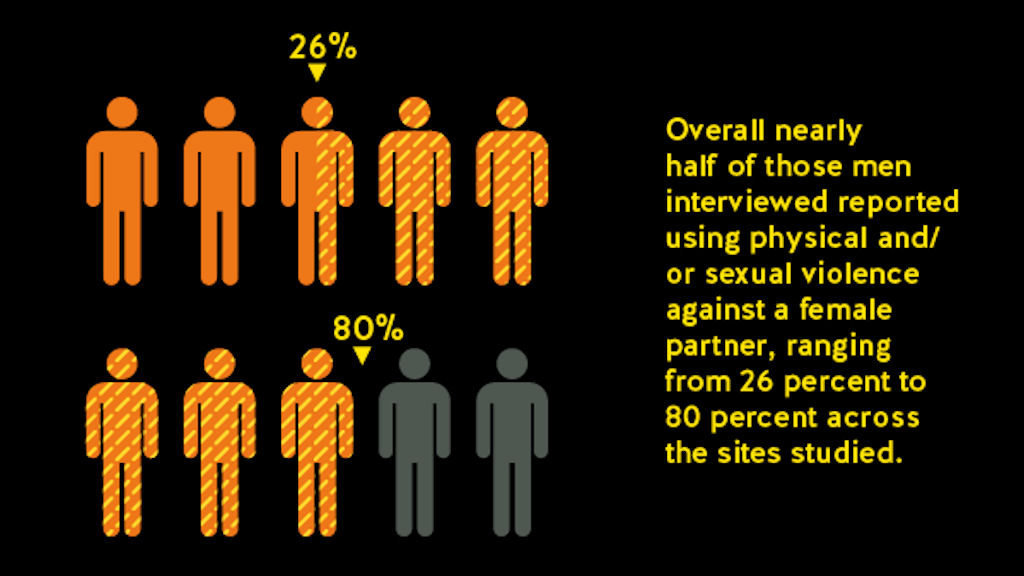Nearly a quarter of men in Asia Pacific admit to rape
A study of 10,000 men across the Asia-Pacific region finds almost half have used physical or sexual violence against a female partner and nearly one in four has raped a woman or girl.

In some areas of Asia, 80 per cent of men said they had they had used physical or sexual violence against a partner. And while one in 10 men admitted raping a woman who was not their partner, the figures rose to almost one in four when their wife or girlfriend was included.
The vast majority of men surveyed in the United Nations study said they expected no legal consequences for their acts, and cited sexual entitlement as their motivation. Nearly half of the respondents claimed they raped someone for the first time when they were in their teens.
The first large-scale study of this type, including 10,000 men and 3,000 women, paints a horrifying picture of violence against women in the Asia-Pacific region, home to almost half the world’s population – but researchers said there was some hope because the figures varied in different countries, showing that widespread violence did not have to be the norm.
We need laws and policies that clearly express that violence against women is never acceptable. Emma Fulu, Partners for Prevention
James Lang, co-ordinator of the regional UN programme Partners for Prevention, said: “This study reaffirms that violence against women is preventable, not inevitable.
“Prevention is crucial because of the high prevalence of men’s use of violence found across the study sites, and it is achievable because the majority of factors associated with men’s use of violence can be changed.”
Men were interviewed across nine sites in Bangladesh, Cambodia, China, Indonesia, Sri Lanka and Papua New Guinea.
‘Violence against women is never acceptable’
Although India was not included in the study, the findings have been published on the same day as an Indian court found four men guilty of the gang rape of a student in December last year – an incident which sparked nationwide protests over the treatment of women.
Researchers deliberately did not use the word “rape” or “violence” in the survey, asking instead questions like “Have you ever forced a woman who was not your wife or girlfriend at the time to have sex?”
Bougainville in Papua New Guinea had the highest prevalence of rape, where almost two-thirds of respondents said they had committed rape. The lowest was in urban Bangladesh, where only 9.5 per cent of the men questioned admitted rape.
They found that men who had experienced sexual or physical abuse as children were more likely to perpetrate sexual violence as adults – which they said did not excuse the behaviour, but could highlight that more work needs to be done earlier to prevent the ongoing “cycle of violence”.
The study, entitled “Why do some men use violence against women and how can we prevent it”, suggested that education as well as tougher punishments could begin to combat rape and violence against women in the region.
Emma Fulu, researcher at Partners for Prevention, said: “Given the early age of violence perpetration we found among some men, we need to start working with younger boys and girls than we have in the past.
“We also need laws and policies that clearly express that violence against women is never acceptable, as well as policies and programmes to protect children and end the cycles of violence that extend across many people’s lives.”